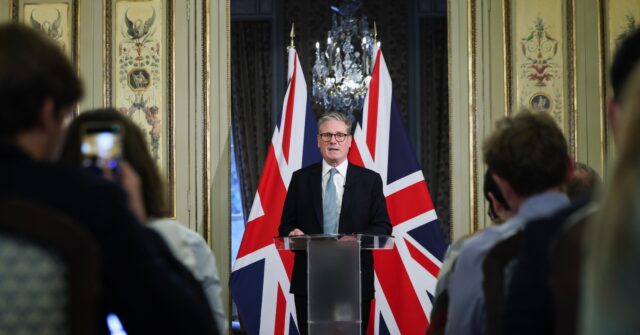The British Labour Party government is embroiled in a controversy surrounding the mass stabbing at a children’s dance party in Southport, where Axel Rudakubana, an 18-year-old Rwandan migrant, has been charged with producing the deadly toxin Ricin and downloading an Al-Qaeda terror manual. The stabbings, which resulted in three young girls’ deaths and ten other injuries, ignited significant anti-mass migration protests and riots across England, leading to over one thousand arrests. Initial government responses included strong condemnations of misinformation circulating about the suspect’s identity, who was later revealed to be Rudakubana, born to Rwandan parents in Wales. In the media frenzy, figures such as Nigel Farage faced backlash for questioning the attack’s terror elements, indicating a polarized public reaction fueled by an information void.
The situation intensified when it was disclosed that Rudakubana faced terror-related charges. Despite still not confirming if the stabbing incident itself was a terrorist act, he is accused of violating several laws associated with terrorism and biological weapons. The authorities’ efforts to respond swiftly lacked clarity, which led to public confusion and unrest. High-profile criticisms arose, particularly directed at the government for allegedly withholding vital information that could have prevented the misinformation that spread post-attack. Former Downing Street advisor Dominic Cummings has been vocal about these allegations, implying that the government had been aware of the suspect’s activities much earlier than they claimed.
The government’s refutation of cover-up claims has been mixed with assertions that such accusations only serve to undermine public trust. The Labour government has faced increasing pressure from opposition parties, specifically the Conservatives, demanding transparency about their knowledge of Rudakubana’s alleged terrorist activities. Political figures like Kemi Badenoch and Robert Jenrick have highlighted the need for clarity on when the government was informed, suggesting that lingering doubts could irreparably damage public confidence in crime reporting. This sentiment reflects a broader concern over how effective the government has been in managing both public safety and information dissemination during crises.
Further complicating the discourse, the Free Speech Union has suggested that many of the prosecutions tied to inflammatory social media posts surrounding the stabbing are now in jeopardy, especially given the potential implications that arise from the alleged terror charges against Rudakubana. The ramifications of these events have raised questions about the balance between protecting public discourse and managing the narrative amidst such a heated topic. The backlash against social media communication during the riots has prompted discussions about free speech and the right to voice opinions in a climate where individuals faced consequences for their expressions.
In a session of Prime Minister’s Questions, the issue was brought up, but Prime Minister Keir Starmer refrained from directly addressing the inquiries regarding the handling of information related to the stabbing incident. Instead, he focused on the importance of allowing the police to conduct investigations without political interference. His response was seen as an attempt to shift the focus back to governmental support for law enforcement, while critics argue it avoids accountability and transparency. The line between political maneuvering and true engagement with public concerns appears blurred as the situation continues to evolve, indicating a possible fracture within party lines regarding the response strategy to violence intertwined with migrant issues.
Ultimately, the Southport mass stabbing has illuminated significant challenges within UK governance, including the management of public perception, the handling of sensitive information, and the balance of free speech in a multicultural society grappling with the aftermath of violence. As investigations and legal proceedings unfold, the political landscape remains charged with debates over accountability and trust, signaling a critical juncture for the Labour Party government in navigating both public safety and political legitimacy moving forward.

